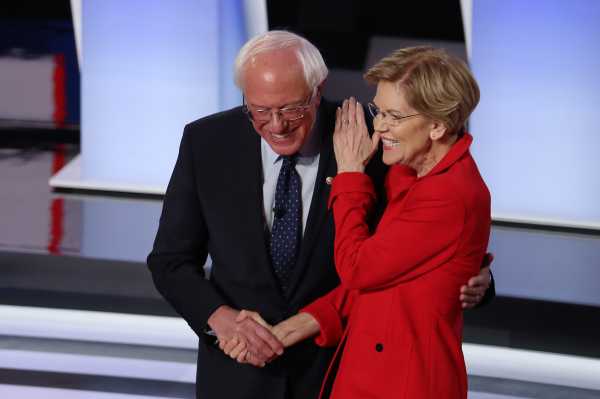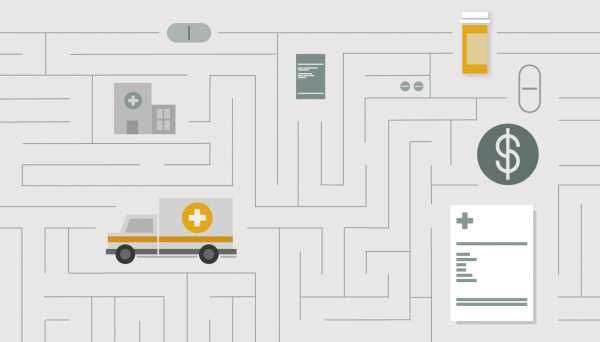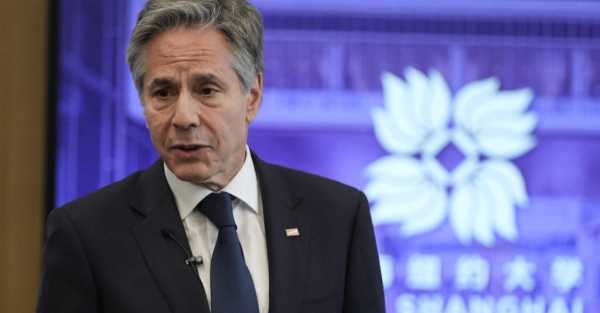
America is in the middle of its deadliest drug overdose crisis in history, with the opioid epidemic now linked to tens of thousands of deaths every year and other types of drug overdoses steadily increasing in recent years.
In his nearly three years in office so far, President Donald Trump hasn’t done much to fight the crisis. He declared an emergency over the opioid epidemic, but a watchdog agency found the declaration didn’t lead to much actual policy change. And while Trump, with the support of Congress, has committed a few billion dollars to the opioid crisis here and there, the funding falls short of the tens of billions of dollars that experts claim is needed to fully confront the epidemic. Advocates have called Trump’s approach “a lot of talk, little action.”

Vox has launched The Rehab Racket, an investigation into America’s notoriously opaque addiction treatment industry. As part of this, we’re crowdsourcing patients and families’ rehab stories, with an emphasis on the cost of treatment and quality of care. If you’d like help our reporting by sharing your story, please fill out this survey.
The Democratic candidates for president, however, are promising a more serious approach. The candidates currently leading in the polls have rallied around proposals to commit tens of billions to the crisis and to addiction treatment in particular, with Elizabeth Warren’s bill to spend $100 billion over 10 years especially drawing support. Most candidates have also talked up their health care plans in relation to the opioid epidemic, claiming that the plans would boost access to addiction treatment by making sure it’s covered by health insurance.
The Democrats have also talked a lot about holding drug companies accountable for their role in fueling the opioid crisis and curtailing excessive prescriptions for opioid painkillers.
Fewer Democratic candidates, though, have thrown their explicit support behind expanding harm reduction approaches, such as needle exchanges, supervised consumption sites, and the opioid overdose antidote naloxone.
At the very least, though, the calls for bolder action make the Democratic candidates very different from a Trump administration that has, for the most part, neglected the crisis so far.
Most Democrats want more addiction treatment. There’s less support around harm reduction.
The Democratic presidential candidates have generally called for holding pharmaceutical companies and their executives accountable for the opioid crisis — vowing not just to fine them, which the federal government has long done, but also to hold these corporations and their leaders criminally liable. Most candidates have also talked favorably about reducing prescriptions for opioid painkillers and making alternative pain treatments more available.
Beyond that, Democrats have varying proposals for expanding access to drug addiction treatment and, in fewer cases, harm reduction approaches.
The most popular proposal is the CARE Act, which Warren first introduced in 2018 with Rep. Elijah Cummings (D-MD). That legislation, modeled after the Ryan White CARE Act Congress passed in 1990 to boost access to HIV/AIDS treatment, would commit $100 billion over 10 years to funding addiction treatment and harm reduction programs at the local, state, and federal levels. It’s the kind of investment that experts and advocates have said is needed to really fight the opioid epidemic.
Several candidates besides Warren, including Bernie Sanders, Kamala Harris, and Cory Booker, have backed the CARE Act.
Separately, other candidates have proposed their own funding boosts for addiction care and harm reduction. Pete Buttigieg put out a comprehensive mental health and addiction plan that includes $100 billion in funds for innovative local treatment approaches. Amy Klobuchar unveiled a $100 billion mental health and addiction plan. John Delaney put out a plan to spend $3 billion to $4 billion more a year on treatment.
This would help address a serious problem: According to federal data, just one in 10 people with a drug addiction get specialty treatment, largely because addiction treatment is often far too expensive or simply doesn’t exist in an area.
The Democratic proposals go further, though, in emphasizing evidence-based treatment. As Vox is now investigating, much of the addiction treatment that’s available out there has little to no evidence behind it. (If you have gone through treatment and would like to help our reporting, fill out our survey.) But the candidates’ plans seek to target approaches that have studies and other empirical research behind them.
For opioid addiction, for example, the plans prioritize medications like methadone and buprenorphine that studies show cut the death rate among patients by half or more. Despite the strong evidence for these medications, the majority of addiction treatment facilities in America don’t offer them — and the candidates’ plans would try to change that.
The candidates also point to their universal health care proposals to boost access to addiction treatment. Federal laws currently require health insurers to in many cases cover treatment, but the laws are notoriously underenforced. Candidates claim their health proposals would put more enforcement behind the laws and regulations, which experts say is key to better integrating addiction treatment into the rest of the health care system.
Where there’s less explicit support is harm reduction services, which try to acknowledge that some people are going to continue using drugs and minimize the risks that come with that. Several Democrats explicitly back expanding access to naloxone, and fewer explicitly support more needle exchanges, where people can pick up sterile syringes to avoid needle-based infections. Both of these harm reduction ideas have strong evidence in their favor.
Very few — mainly Warren, Sanders, and Bill de Blasio — explicitly back supervised consumption sites, which are safe spaces where people can use drugs under medical supervision. Trump’s administration says that these are illegal under federal law. The sites have generally positive but somewhat weak evidence behind them.
In another area, Buttigieg and Andrew Yang have called for decriminalizing at least opioids by removing the federal threat of jail or prison time for possession. While all the candidates have talked about scaling back the war on drugs at some point, decriminalizing currently illicit drugs besides marijuana has historically gotten very little support from major party politicians. But the idea, some advocates argue, would eliminate some of the stigma and fear that’s attached to drug use and treatment.
With the exception of candidates who have said very little of substance about opioids, like Julián Castro, Marianne Williamson, and Wayne Messam, the Democratic candidates have generally made it clear that they would go further than Trump has. The major question is if they’d have the support from Congress needed to implement most of their plans should one of them make it to the White House.
How the Democratic candidates would address the opioid epidemic
Former Vice President Joe Biden: Biden’s health care plan, which seeks to build on Obamacare with a public option for health insurance and better enforcement of coverage rules, would help boost access to drug addiction treatment, according to his campaign. His criminal justice plan would also boost spending on treatment. And it would use treatment over incarceration for people with drug problems, as well as offer treatment to people in jail or prison. On the campaign trail, Biden has spoken about pulling back opioid prescriptions and holding drug companies accountable for their role in fueling the opioid crisis.
Sen. Elizabeth Warren: Warren has introduced a bill that would commit $100 billion over 10 years to fight drug addiction — a huge investment in treatment and harm reduction programs, focused on evidence-based practices like opioid addiction medications and naloxone. She’s also acknowledged the role of health insurance, including Medicare-for-all, to help cover addiction treatment. In her criminal justice plan, Warren called for diverting people with drug addictions from prison to treatment, and backed needle exchanges and supervised consumption sites. And she’s supported separate legislation that would impose criminal penalties on big company executives that “knowingly hurt people through criminal negligence — such as fueling the opioid crisis.”
Sen. Bernie Sanders: Sanders cosponsored Warren’s bill to commit $100 billion over 10 years to drug addiction treatment and harm reduction programs. He has also argued that Medicare-for-all will guarantee access to addiction treatment. In his criminal justice plan, he backed supervised consumption sites and needle exchanges, and emphasized the need to move away from locking up people with drug addiction and instead giving them access to treatment. And he’s introduced legislation that would aim to “hold CEOs of drug companies criminally liable for illegal advertising, marketing, or distribution of opioids,” among other steps to reduce access to opioids.
Sen. Kamala Harris: Harris cosponsored Warren’s bill to spend $100 billion over 10 years on drug addiction treatment and harm reduction programs. Her office said that her Medicare-for-all plan would expand access to addiction treatment. She’s also supported moving away from incarceration to treatment for people with drug addictions. And she’s introduced a bill to, her office said, get the Food and Drug Administration to “provide greater oversight over advertising and other promotion materials for opioid drugs,” including stopping misleading marketing from pharmaceutical companies.
South Bend, Indiana, Mayor Pete Buttigieg: Buttigieg released a comprehensive plan to tackle drug addiction and mental health issues in the US. The proposal would aim to scale up addiction treatment across the country, including through a 10-year, $100 billion grant program to encourage innovation at the community level, with an emphasis on boosting access to opioid addiction medications. It would also push insurance companies to cover addiction treatment and undertake broader efforts to ensure treatment is integrated into the health care system. It would decriminalize all drug possession at the federal level and push treatment over jail or prison for people with addictions. And it would expand naloxone and needle exchange programs.
Sen. Cory Booker: Booker cosponsored Warren’s bill to spend $100 billion over 10 years on drug addiction treatment and harm reduction programs. He introduced a bill to expand addiction treatment for incarcerated individuals, and backed legislation to get insurers to pay for treatment. He’s also been a major advocate of criminal justice reform, pushing for treatment for people who use drugs instead of jail and prison time. And he’s spoken about holding pharmaceutical companies accountable for their role in the opioid crisis.
Andrew Yang: Yang put out a plan to address the opioid crisis. It would boost funding to addiction treatment by more than $15 billion a year, and — in a proposal that would be extremely controversial among experts and advocates — require that overdose patients are “sent to mandatory treatment centers for three days to convince them to seek long-term treatment.” The plan would also take several steps to reduce opioid prescribing, including by increasing FDA regulation and imposing a tax on opioid painkiller manufacturers that’s retroactive to 2005 (which might be unconstitutional). Separately, Yang has also called for decriminalizing opioids. His plans do not give any attention to harm reduction programs, but he’s spoken favorably about harm reduction on the campaign trail.
Former Rep. Beto O’Rourke: O’Rourke’s office said Medicare for America, the health care bill he supports that would essentially let anyone enroll into Medicare, would help expand access to addiction treatment by getting the US to universal health care. He’d also back the expansion of buprenorphine, the opioid addiction medication. He’d push for accountability of opioid painkiller companies. And he’d support alternative pain management approaches, including medical marijuana.
Rep. Tulsi Gabbard: Gabbard’s campaign website does not include a plan regarding the opioid epidemic and her staff did not return requests for comment. In the past, Gabbard introduced a bill to hold top company executives and drug manufacturers criminally liable for misleading opioid marketing. Her statements on the opioid crisis have typically focused on holding opioid companies accountable, with little attention to boosting drug addiction treatment or harm reduction services.
Former HUD Secretary Julián Castro: Castro’s campaign website does not include a plan regarding the opioid epidemic and his staff did not return requests for comment. Based on news reports, he has made very few comments about the opioid epidemic on the campaign trail.
Sen. Amy Klobuchar: Klobuchar’s campaign put out a $100 billion plan to address mental health issues and drug addiction. The proposal would promote early interventions for drug use, including at schools, as well as boost addiction treatment, including medications for opioid addiction. It would enforce laws requiring insurers to cover addiction treatment. It would also support research for more addiction treatments and non-opioid pain treatments. And it would discourage the use of jail or prison over treatment for people who use drugs, as well as encourage first responders to carry naloxone. It would impose a 2-cent fee on each milligram of an active opioid ingredient in painkillers to help pay for the plan and try to hold drug companies accountable for their involvement in the current overdose crisis.
Montana Gov. Steve Bullock: Bullock’s campaign said he would boost access to drug addiction treatment by “building on Obamacare by adding a public option, ending surprise medical billing, and allowing the federal government to negotiate drug prices.” As governor, he also signed a bill into law that curtails opioid painkiller prescriptions.
Sen. Michael Bennet: Bennet’s health care plan includes a section on fighting drug misuse. His proposal would put $60 billion to fighting addiction and scaling up treatment. He would also require insurers to pay for addiction treatment and non-opioid pain treatments. And he would expand access to naloxone. He also vowed to hold opioid painkiller producers and distributors accountable with criminal penalties for illegal marketing and by forcing them to pay for $20 billion to help fund his plan.
Marianne Williamson: Williamson’s campaign website does not include a plan regarding the opioid epidemic and her staff did not return requests for comment. On the campaign trail, she’s spoken about holding opioid companies accountable, the excessive prescribing of painkillers, and having “24-hour 12-step programming available on cable television.”
Tom Steyer: Steyer’s campaign said he will focus on incarcerating people from “drug companies conspiring to addict Americans to opioids,” instead of simply fining them. He has also criticized Trump for enacting a tax cut that some drug companies benefited from, when much of that money could have gone to efforts to end the opioid crisis.
Rep. Tim Ryan: Ryan’s campaign website does not include a plan regarding the opioid epidemic and his staff did not return requests for comment. As a member of Congress, Ryan has spoken about expanding addiction treatment and curtailing opioid painkiller prescriptions.
Former Rep. John Delaney: Delaney put out a plan to tackle the opioid epidemic. It would spend $3 billion to $4 billion more a year, raised through a new tax on opioid painkillers, to help states expand access to addiction treatment. His campaign also pointed to his health care plan, which would take steps to get insurers to pay for more addiction treatment. Delaney would also move to curtail opioid painkiller prescribing by pushing doctors to prescribe less, going after pharmaceutical executives who played a role in the crisis, and increasing federal enforcement efforts against the diversion of opioid painkillers.
New York City Mayor Bill de Blasio: De Blasio’s campaign website does not include a plan regarding the opioid epidemic and his staff did not return requests for comment. As New York’s mayor, he has implemented policies to expand drug addiction treatment (especially medications for opioid addiction), access to naloxone, needle exchange services, and education programs related to drugs. He has also supported efforts to open a supervised consumption site in New York. And the city, under de Blasio, sued drug companies for their role in the opioid crisis.
Miramar, Florida, Mayor Wayne Messam: Messam’s campaign website does not include a plan regarding the opioid epidemic and his staff did not return requests for comment. Based on news reports, he has made very few comments about the opioid epidemic on the campaign trail.
Former Rep. Joe Sestak: Sestak said in a statement that he supports expanding access to treatment, pointing to Virginia’s program increasing reimbursement rates from Medicaid to ensure that evidence-based addiction treatment is encouraged and more available. He also said that he would improve enforcement to require insurers to pay for addiction treatment. He would increase research on addiction treatments, including into psychedelic drugs like psilocybin and MDMA. And he would take steps to punish drug companies for their role in the opioid crisis by levying fines that would be used to help pay for more treatment and establishing a new office in the Department of Justice to ensure these companies are held criminally liable.
Sourse: vox.com







